

Discover more from The Freedom Analects
Sovereignism Part 5: The Extinction of Politics
A 12-part essay series exploring the disruption of the nation-state and the subsequent amplification of individual sovereignty during the Digital Age.
This series is loosely based on the 1997 masterwork: The Sovereign Individual.
“Exodus believes in empowering the individual to control their wealth and financial destiny and has provided financial support for the research and writing of this series. Exodus has no editorial control over the content of these writings.”
Part 4 took us through the origins of government, organized crime, and property to see how these social constructs will change as sovereignism rises during the Digital Age. In Part 5, we will dig into history again, exploring the effects technology has on reshaping political institutions and human interaction. Political power emanates from the prevailing economic and technological realities of each era. Digital technologies largely dissipate the utility of violence which has been the “alpha and omega” of human organization up to this point in history, and will therefore put an end to the modern preoccupation with politics. Mega-political variables are once again reconfiguring human power structures, this time by penalizing coercion and rewarding competence. An Analog Age institution dependent on high economic returns to violence, the nation-state model is growing old and senile…
Senility of the Nation-State
“The State, in the words of Oppenheimer, is the "organization of the political means"; it is the systematization of the predatory process over a given territory.”—Murray Rothbard
Beginning in the agricultural age, the systemization of violence and protection became the primary means of sociopolitical power in the world. As locally legitimized monopolies on violence (governments) were established, gaining political control of these militant enterprises and their underlying customers (taxpayers) became the greatest way to wield power in the world. When money and property can be stolen, the economic returns to violence are positive. This leads to more power vested in the state, and a greater emphasis on politics. Unknown to most, the modern-day obsession with politics largely stems from this statist mode of violence-based socioeconomic organization, which is made possible through the violability of property.
Government is the most expensive service most of us will ever pay for, and politics is the mechanism which controls it. The simple economic truth is that if capital could not be confiscated, we would all have much less reason to care about the political leanings of one another. But since the theft of property has been an ever-present danger historically, politics provided a more peaceful means of reaching consensus on property distributions than its natural extension—war. Preserving property interests have always been the enterprise of the local enforcer, which in the turns of history came under political control. As such, states across history have expended great resources on propaganda to sculpt political opinion in the aim of advancing their economic interests by justifying the confiscation of property.
In a modern sense and performed at scale, all political systems are premised on the control and rationalization of coercive state powers over people. Derived from the French word politique, the term politics first appeared in English in the early 1500s. Even then, the word seems to have been used pejoratively, as it was used to describe “opportunists and temporizers” in both English and French speaking parts of the world during and before the 16th century. Politics is the imposition of one aggregation of human will power over another—it requires some exploitable vulnerability in its target population to function. Without a credible source of leverage or threat of force to back it, politics is mostly a pointless exercise in opinion sharing. A veiled threat of violence upholds the relevance of all political institutions. For these reasons, a positive correlation between the economic returns to violence and the prevalence of politics exists even unto this day.
“The state — or, to make matters more concrete, the government — consists of a gang of men exactly like you and me. They have, taking one with another, no special talent for the business of government; they have only a talent for getting and holding office. Their principal device to that end is to search out groups who pant and pine for something they can’t get, and to promise to give it to them. Nine times out of ten that promise is worth nothing. The tenth time it is made good by looting ‘A’ to satisfy ‘B’. In other words, government is a broker in pillage, and every election is a sort of advanced auction on stolen goods.”—H.L. Mencken
In modern nation-states, politics is the discourse of how and why to apply violence or coercion. By changing the ways in which violence can be applied, technology is the key mega-political variable affecting the politicization of social institutions. With the invention of gunpowder, the cost of projecting violent force across space plummeted, thus improving the economic returns to violent action. Inevitably, in the wake of this technological change came the logical escalation in the ongoing struggle to control the political apparatus directing the state. Politics grew to become the decision-making body capturing much of this expanding profit margin in the commercial enterprise of violence. In the wake of the gunpowder revolution, these sharply increased spoils of power would serve as the economic sustenance feeding a larger and more oppressive nation-state. In this way, politics has grown to become a primary feature in many modern cultures.
Economics is upstream from politics and culture: Economics and Technology (generators and voluntary allocators of wealth) —> Politics and War (consumers and involuntary allocators of wealth) —> Culture (how humans enjoy the wealth created: a downstream reflection of economical, technological, and political source waters).
Contributing to the organizational scaling of the statist model into our modern conception of the nation-state was the immobility of capital. Most industrial age capital consisted of large factories, plants, and heavy equipment that suffered from limited to no mobility. Evaluating this through the logic of violence lens, it is apparent that the less mobile capital assets are, the more often “fight” becomes the dominant strategy. When objects of economic value cannot be moved or hidden, the only option in the face of onrushing attackers is (typically) to defend. Contrarily, when capital is hyper-mobile and can be ported quickly, cheaply, and discretely, the dominant strategy is most often “flight.” Like any other enterprise, violence is subject to the tyranny of cost-benefit calculus. The nation-state model was useful in an industrialized society where most economic value was tied up in immobile factories, plants, and equipment.
In the digital age, a great deal of the economic returns to large scale operations have been compressed through industrial commodification. Intellectual property and other legal monopoly protections (except for those safeguarding monopolies on violence and currency issuance) have expired in many industries, increasing competitive intensity and innovation. As a result, over long time scales consumer prices of commodities have gone down, mirroring an increase in aggregate wealth. Such economic gains of commodification can only be derived from free exchange. Coupled with the free-flowing nature of information systems less dependent on intermediation, and with the collapsing cost of distribution for modern firms, it is clear that every industry which can be operated in a digital-native way is heavily incented to do so. Lower real estate, rent, and tax expenses; less dependency on large-scale and immobile capital assets; a broader and more skillful selection of non-local talent; and the ability to “bend spacetime” by fully leveraging digital tools makes the digital-forward organization a force to be reckoned with in every industry. In short: with greater capital mobility comes more resiliency against political imposition of all sorts.
As Andreessen famously asserted: “Software is eating the world.” This proclamation is not limited to the private business ecosystem; all social institutions used to organize human affairs are at risk of disruption. The more rigid and imposing the institutional power structure in question, the more susceptible it is to dissolution in the Digital Age. Nation-states and central banks—the largest and least flexible institutions—stand to lose the most in the resultant digital transformation. An inability or unwillingness to adapt to consumer preferences causes less agile institutions to be disfavored in a digital world of ever-more optionality. After centuries of intentionally infantilizing citizens to ensure their dependency on, and therefore subservience to, top-down power structures, the nation-state model has grown old and senile. Force is simply a less productive strategy when capital flight is an option.
In the twilight years of the nation-state, governments are increasingly vulnerable to sudden collapse. Not only are national governments suffering from widespread disapproval, but their revenue models are also directly threatened by Bitcoin. The more intensely politicians and bureaucrats tax their populations and inflate their currencies, the more moral outrage will build, and the more demand will surge for inflation-proof and difficult-to-tax money. By giving people an option to exit central bank fiat regimes into an impenetrable “de-central bank,” Bitcoin amplifies individual sovereignty, and causes political institutions to lose leverage. In a world governed by politics, the implications of Bitcoin’s ultimate success are seismic.

Perhaps even more significant than the transition from the Agricultural into the Industrial Age, the Digital Age forces us to reevaluate everything we thought we knew. But what are the signs to watch for as this historical shift unfolds? Stepping forward into the unknown, we may draw some mega-political parallels to the fall of The Medieval Church.
Mega-Politics of the Medieval Church
“Technology is precipitating a revolution in the exercise of power that will destroy the nation-state just as assuredly as gunpowder weapons and the printing press destroyed the monopoly of the medieval Church.”—The Sovereign Individual
A leading indicator of imminent mega-political change is moral outrage. Usually, such vitriol is directed at institutional leaders believed to be corrupt. As people operating under the political hierarchy in question become aware of its declining usefulness or relevance in their lives, they begin to view those in charge unfavorably, especially when misappropriation or expropriation of capital is involved. Without effective structural reform, this disfavor can quickly descend into hatred, and can even culminate in institutional collapse.

After declining economic conditions and worsening institutional corruption, The Medieval Church began losing popular support. Clergy members of both the lower and higher ranks were held in heavy contempt by the masses. A close semblance of popular attitudes towards politicians and bureaucrats today, this zeitgeist would prove to be a precursor to the collapse of The Church. But popular outrage alone was insufficient to bring down the dominant institution of the day. Actualizing The Church’s final institutional failure was a seemingly simple technology: the printing press. Today, we take books, literacy, and numeracy for granted, but only in hindsight is their connection to the institutional collapse of The Church so apparent.
“The capacity to mass-produce books was incredibly subversive to medieval institutions, just as microtechnology will prove subversive to the modern nation-state. Printing rapidly undermined the Church’s monopoly on the word of God, even as it created a new market for heresy.”—The Sovereign Individual
At the time, it was not obvious that the printing press would accelerate the proliferation of literacy and numeracy in a way that would forever redraw the lines of political power in the world. Prior to the printing press, The Church held a monopoly on book printing via the scriptoria, which gave them a stranglehold on the quantity and quality of ideas flowing through medieval society. In the final decade of the 15th century, over 10M books were published using the printing press, more than were printed in the ~500 years leading up to its invention. As The Church awakened to the existential threat the printing press posed to its monopoly on book production, and therefore its influence over the flows of knowledge, it attempted to suppress this emergent technology. But because the printing press was just an idea, and its time had come, it defied suppression and quickly became an unstoppable mega-political force.

Attempts by The Church to censor the adoption of the printing press only accelerated its proliferation. Testifying to the unstoppability of “an idea whose time has come,” The Church’s heavy-handedness resulted in printing presses being used to print books on “how to build a printing press.” The unintended consequence of technological suppression was self-catalyzing institutional subversion. In modernity, a similar dynamic will hold for the spread of encryption technologies: government attempts to suppress them will encourage the spread and development of ever-more subversive encryption. Said simply: worsening censorship creates more demand for censorship-resistant tools, thus lessening the relevance of the censorial.
“The Church found that censorship did not suppress the spread of subversive technology; it merely assured that it was put to its most subversive use.”—TSI
The wider availability of books reduced the cost of distributing information, and therefore accelerated the spread of knowledge among human minds. By improving the “liquidity of ideas,” a greater quantity and quality of thinking and thinkers emerged as a direct result of the printing press. Similarly today, digital technology has once again collapsed the cost of information distribution, and is contributing to the increasing irrelevance of Analog Age institutions. Instead of blindly trusting institutions or corporate brands, members of modernity—especially digital natives—are much more likely to do their own research before making an important decision about health, wealth, or lifestyle. Like the printing press centuries before, digital technology is once again collapsing the cost of information, radically accelerating knowledge flows across the world, and improving the quality of cognition.
The printing press was the primary propellant of literacy, numeracy, and self-study throughout the medieval world. Newly equipped, worshippers could now gain direct access to the word of God, and the need for intermediaries was diminished. This negatively impacted the rent-seeking revenues of The Church, like indulgences, and contributed to its loss of power. In an unexpected turn of history, the printing press contributed to a widespread dissemination literacy and numeracy which undermined the dominance of The Church. Literacy and numeracy—indispensable forms of psychotechnology (which are discussed in the last section of this essay)—lowered the “transaction costs” of sharing knowledge, which improved the “liquidity of ideas” and led to a decidedly more intelligent and independently thinking population:
“Another subversive consequence of the printing press was its effect in dramatically lowering the costs of reproducing information. A crucial reason why literacy and economic progress had been so minimal during the Middle Ages was the high cost of duplicating manuscripts by hand.”—The Sovereign Individual
Reflecting this past mega-political change in the sphere of knowledge today is digital media. For sovereigntists, a top-down distribution model for ideas is not trustworthy, acceptable, or even relevant. Instead, useful knowledge is obtained from the cross-currents of free exchange among a multiplicity of mediums including social media, peer-to-peer asynchronous messaging, and the so-called intellectual dark web. Whereas the mainstream media (more aptly called the corporate press) is premised on a “one to many” distribution model, digital-native media is a “many to many” model and, thus, better at filtering out singular biases, agendas, and other forms of propaganda injected by political institutions.
Under similar mega-political circumstances as those leading to the fall of The Church, today we are seeing the start of digital technology dissolving nation-state coherence by disrupting the central bank and the corporate press. Slipping into economic irrelevance due to (psycho)technological disruptions produced by the printing press, The Church gradually fell from grace, leading to a scientific renaissance with a “don’t trust, verify” ethos embedded deep within its hyper-rational social fabric. This pragmatic ethos would ultimately bear the eclectic financial, technological, and philosophical fruit known as Bitcoin centuries later. A fascinating new (psycho)technology, Bitcoin promises to make modern political institutions as irrelevant as The Medieval Church.
Psychotechnologies and Politics
“I also believe—and hope—that politics and economics will cease to be as important in the future as they have been in the past; the time will come when most of our present controversies on these matters will seem as trivial, or as meaningless, as the theological debates in which the keenest minds of the Middle Ages dissipated their energies.”—Arthur C. Clark
Technology—defined here as the systematic use of tools—shapes the day to day actions taken by humans. As the only animal with a sophisticated conception of time, humans spend many of their waking hours engaged in work making preparations for an always uncertain future. Work involves the usage of tools, the making of tools, the making of tool-making tools, and so on in ever-longer and more complex production processes. Over long enough sequences of production, repetitive tool use fosters adaptive changes in users. A workman who swings a sledge hammer daily will develop exceptionally strong muscles and swinging technique; an office clerk who spends their days preparing emails will develop the ability to type many words per minute or perhaps even carpal tunnel syndrome (see material engagement theory). But not all tools and technologies are tangible. Some “technologies” are purely mental constructs and can, thanks to neuro-plasticity, have an even more pronounced impact on human adaptation. So-called psychotechnologies are non-corporeal implements that improve human productivity by systemizing cognition:
Two obvious and pervasive psychotechnologies are literacy and numeracy, which together facilitate the vast majority of human thought, communication, and record-keeping. Less obvious psychotechnologies include rhetoric (which was instrumental in the ascent of politics), memory palaces, and speed reading. Without literacy, our thinking and capacity for economic cooperation and competition would be drastically constricted, leading to a major diseconomization of human action. Through the observation of ourselves and others acting across time humans generate procedural knowledge—the knowing “how”—which is later encoded as semantic knowledge—the knowing “what”. Literacy and numeracy enhance the human capacity for storing and exchanging semantic knowledge: the symbolic representation of action or events in the “real world.” Civilization is a construction of intergenerationally accumulated of semantic knowledge implemented procedurally as labor and capital. In short: civility is expressed in the ways humans act and the things we create. This is why the printing press catapulted civilization forward.
As an accelerant to the spread of critical psychotechnologies, the printing press ushered in unparalleled mega-political changes in the world. The evolution to digital media will lead to an even greater proliferation and permutation of many useful psychotechnologies. For example, thanks to digital technologies, the spoken word now benefits from the same reach and permanence as the written word, but with even more efficient distribution. As a result, human thinking and institutional relevance is again undergoing rapid, radical change. Viewed within this framework of transforming cognition and social institutions, history may come to regard the (psycho)technologies of the digital age as comparably significant to the introduction of the printing press. Among these, the internet and Bitcoin are the two most impactful so far.
A unique hybrid of technology and psychotechnology, money is among the most basic and important instruments a human can wield. Money is a technology in the sense that it has historically (often, but not always) had a physical manifestation—such as precious metal or government paper. Money is a psychotechnology to the extent it influences human perceptions, calculations, and goal-orientations. Giving its users the capacity to perform economic calculation, money is embedded in our mental software (just consider how many times you’ve thought in terms of dollars over the past week). As the language of value money is an indispensable tool of trade: it helps us communicate, negotiate, and plan. Money is a living symbol of pure power, as it can be used to obtain the powers afforded by any other tool or technology the marketplace can bear. Given its physicality and tremendous power, certain cohorts of humans in every civilization have found it in their best interests to violently acquire and control monetary systems to impose political dominion over others.

Monopolized money has always lent greater import to politics. When rulers arrogate themselves absolute authority to manipulate the supply of money to enrich themselves at the expense of citizens, the near limitless power this mechanism imparts seemingly always magnetizes the most unscrupulous to take its reigns. A license to “print money” is an asymmetric political privilege which can only be preserved through violence and deception. When the “proof of work” necessary to obtain money on the free market is disregarded, an incentive structure that is inevitably doomed to fail is incepted. Central banking destroys the work ethic of all those who benefit from the proceeds stolen through currency supply inflation. Further, since money denominates the collective salience landscapes of market actors, politicians and bureaucrats can twist economic perceptions, valuations, and relevance by distorting prices. Armed with the ability to manipulate money, central banks have the power to reprogram human consciousnesses, at least at the margins.
Money is a quintessential (psycho)technology for the scaling of society: when it is decoupled from the physics of reality—the thermodynamics of work—it cannot function properly. Like the muscular buildup of the man who spends a career swinging a sledge hammer, or the carpal tunnel suffered by the email typist, the features of a particular money can mold certain qualities of its users over time. Granting monopolists a virtually unlimited wellspring of freshly confiscated wealth, the mere existence of central banking incentivizes people to be more political, rent-seeking, and dishonest: a pervasive corruption that afflicts perpetrators and victims of inflation alike. Without accountability to user preference, everyone operating within a fiat currency paradigm become polluted and politicized. As inflation magnifies prices—the data packets communicating economic scarcity—civility suffers and social cohesion disintegrates. Monopolized money is the mechanism which feeds the overgrowth of political institutions into unaccountable ideological superstructures. A tool that can “paper over” the consequences of past failures prevents the reallocation of capital away from failed enterprises and market actors from learning. Without intelligent capital allocation and constant learning, the continuous progress of civilization ceases, and political divisiveness widens.

A radically novel monetary technology, Bitcoin is an apolitical property right. Property is an enforced, exclusive relationship between owner and asset. The preservation of political property rights is the responsibility of the state, which makes them vulnerable to whim, artifice, and corruption. Fiat currency supply inflation, eminent domain, and jury duty are all violations of property rights through political means. In a Bitcoin-based economy, all that matters to your earnings potential is how much others are willing to pay you to satisfy their wants. In other words, consumers are sovereign in a free market, not politicians. Military rank, party affiliation, and social proximity to the printing press as determinants of positioning in the global wealth hierarchy are largely mitigated on a Bitcoin standard. By eliminating inflation as a source of war financing, Bitcoin defunds systems of violence at the geopolitical scale. By increasing the cost-to-benefit ratio of wealth confiscation, Bitcoin makes violence at the individual level less rewarding. Since politics is premised on the utility of plunder, Bitcoin lowers the incentives to politicize social institutions. As hyper-mobile capital, Bitcoin affords its users the ultimate “defender’s advantage” in the sphere of property. In this way, Bitcoin is the extinction of politics as the dominant lever of power in the world.
All political authority is premised on the violability of property. Why should I heed your commands unless there is a credible threat of you transgressing against me? Whether taxation, inflation, or direct confiscation, theft of property is the sole revenue source for nation-states today. As a claim on all other forms of property, money is meta-property. Stored properly, Bitcoin is the only money that cannot be stolen, the only inviolable property. A money that resists confiscation in this way is a crucial element for building a sustainable civilization:
“If history could teach us anything, it would be that private property is inextricably linked with civilization” - Ludwig von Mises
Politics by Other Means
Moral outrage toward politicians, government officials, and bureaucrats is increasingly evident today. As we saw leading up to the collapse of The Medieval Church, this “canary in the coal mine” is typically a reliable indicator of imminent institutional change. Compulsory lockdowns, the threat of mandatory vaccinations, and rampant fiat currency inflation are all overt attacks on the property of citizens. As people awaken to this war on their property, they will naturally seek to hold the only property unassailable by parasitic political institutions. When Bitcoin is fully monetized, human hierarchies will be more fruitfully premised on competence rather than coercion, and the nation-state model of the 20th century will finally fall into oblivion. Some nation-states, like Nigeria, are already awakening to the existential threat posed by Bitcoin:
Bitcoin is a radically new social institution agnostic to the art politic: every node operator chooses the rules of Bitcoin for themselves, and cannot be efficiently coerced into unfavorable selections. By virtue of its network’s intrinsic resistance to coercion, Bitcoin only rewards human will power channeled toward the satisfaction of consumer demand—the sole sovereign actors in any free market. By constraining the incursions of nation-states and political actors on the property of citizens, Bitcoin empowers entrepreneurship. The prominence of politics as a critical component of both individual and group identity is a mass psychosis based on the corruptibility of property. An incorruptible property right and social institution, Bitcoin will undoubtedly undo centuries of political programming in the populations that adopt it.
It is foolish for anyone to think that any particular politician can effect lasting systemic change. No human is better than their incentives, and politicians are incentivized to win elections in the short-term no matter the long-term cost. Belief in political power as a constant in human action fails to consider the diminishing viability of the analog levers politicians depend upon the digital age. Can’t get a firearm permit? Print a rifle. Suffering from taxation via inflation? Hold your savings in Bitcoin. Government censoring your communications? Host your content on an immutable lightning-network-based media platform. The tighter politicians squeeze their populations, the faster sovereignists will slip between their fingers and set sail on the digital high seas. As the world witnesses this migration, political psychosis will recede. In this way, the emphasis on political identity is a modern-day delusion destined to be dispelled by plunder-proof capital.

Each new block of Bitcoin is brick in the wall of a coercion-minimized, apolitical civilization. There will always be politics in human affairs, but non-consenual revenue models of nation-states, which are used to fund the imposition of political decisions on an unwilling population, are doomed to collapse in a world where Bitcoin exists. And Bitcoin isn’t going anywhere; it is money wrapped in military-grade encryption optimized for the sole purpose of survival. Self-governed money with unbreakable rules that cannot be confiscated, inflated, or stopped—Bitcoin is the bellwether of the coming breakdown of the property-violation-dependent nation-state . A “software update” to the global implementation of the (psycho)technology called money, Bitcoin’s great promise is the diminution of politics and the economics of violence it presupposes.
“War is the continuation of politics by other means.” — Clausewitz, On War
Political authority is a scam, and its demise is good news for humans everywhere. When rules can’t be bent and money can’t be stolen, the pursuit of peaceful cooperation becomes the most productive strategy for all. Inviolable money is the enervation of politics and its Clausewitzian continuation: war.
Politics is a mass psychosis aggravated by the corruption of civilization’s all-important (psycho)technology—money. Bitcoin is incorruptible money, and therefore it will lead to the extinction of politics. In a nutshell: if politics is the discussion about how to apply violence and coercion, then Bitcoin puts an end to the discussion.

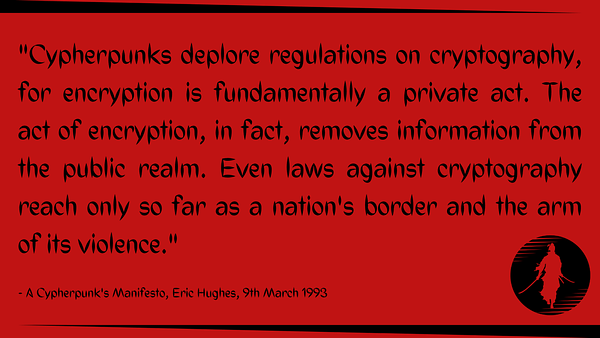
Thank you for reading Sovereignism Part 5: The Extinction of Politics
Subscribe to my YouTube Channel: bit.ly/321Lzm0
Follow me on Twitter: https://twitter.com/Breedlove22
Stack sats with me, get $10 in free Bitcoin through this link: https://www.swanbitcoin.com/breedlove
Journey with me as I write my first book: https://bit.ly/3aWITZ5
If you enjoyed this, please send sats: https://tippin.me/@Breedlove22
Or, send sats via Lightning Network with Strike: https://strike.me/breedlove22
Or, send sats via PayNymID: +tightking693
Or, send dirty fiat dollars via PayPal: https://www.paypal.com/paypalme/RBreedlove
Or, send dirty fiat dollars via Venmo: https://venmo.com/code?user_id=1784359925317632528
Bitcoin accepted here: 3CiBznmvP2jXVSPR9bUWZwSNtbe9ubp36M
Translations:
x
My sincerest gratitude to these amazing minds:
@real_vijay, Saifedean Ammous, Brandon Quittem, Dan Held, Naval Ravikant, @NickSzabo4, Nic Carter, @MartyBent, Pierre Rochard, Anthony Pompliano, Chris Burniske, @MarkYusko, @CaitlinLong_, Nik Bhatia, Nassim Nicholas Taleb, Stephan Livera, Peter McCormack, Gigi, Hasu, @MustStopMurad, Misir Mahmudov, Mises Institute, John Vallis, @FriarHass, Conner Brown, Ben Prentice, Aleksandar Svetski, Cryptoconomy, Citizen Bitcoin, Keyvan Davani, @RaoulGMI, @DTAPCAP, Parker Lewis, @Rhythmtrader, Russell Okung, @sthenc, Nathaniel Whittemore, @ck_SNARKs, Trevor Noren, Cory Klippsten, Knut Svanholm @relevantpeterschiff, Preston Pysh, @bezantdenier
And anyone else I forgot :)
Sources:
https://www.pinterest.com/pin/1052646112873394197/?d=t&mt=login
https://en.wikipedia.org/wiki/History_of_propaganda#Pre-modern_precedents
https://medium.com/@hasufly/bitcoin-and-the-promise-of-independent-property-rights-8f10e5c7efa8
https://www.goodreads.com/quotes/407890-the-state-or-to-make-matters-more-concrete-the
Subscribe to The Freedom Analects
Written works exploring truth, power, freedom, money, economics, virtue, sovereignty, philosophy, and other enigmas of existence.





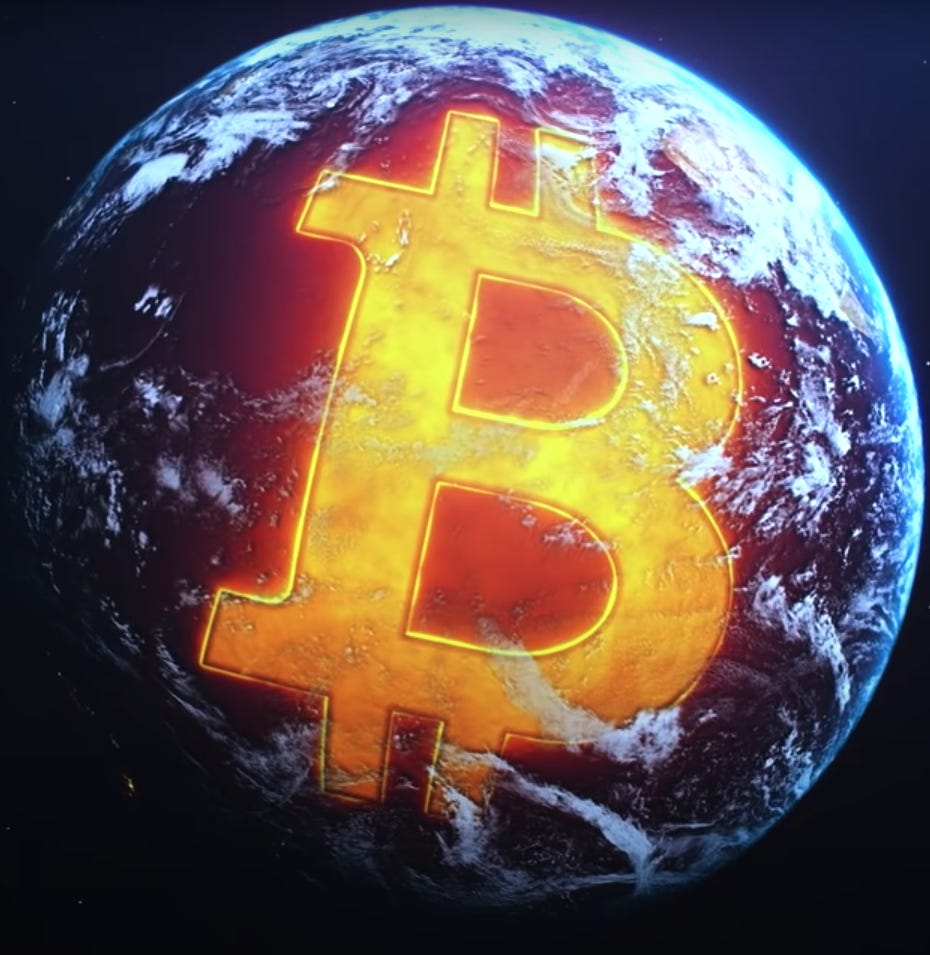
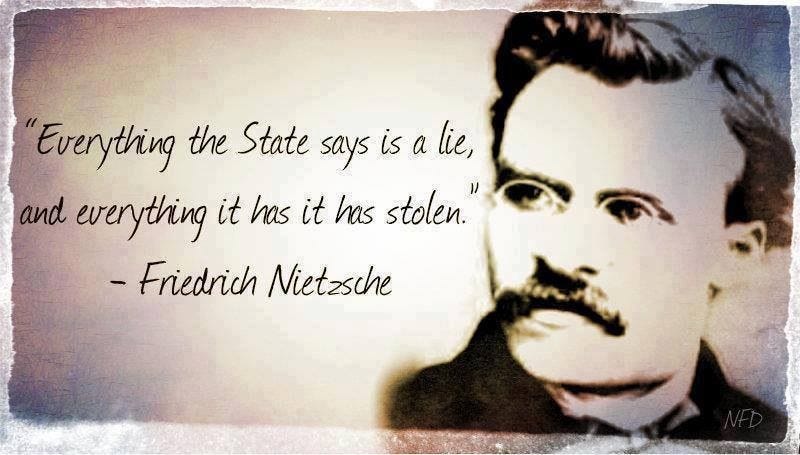

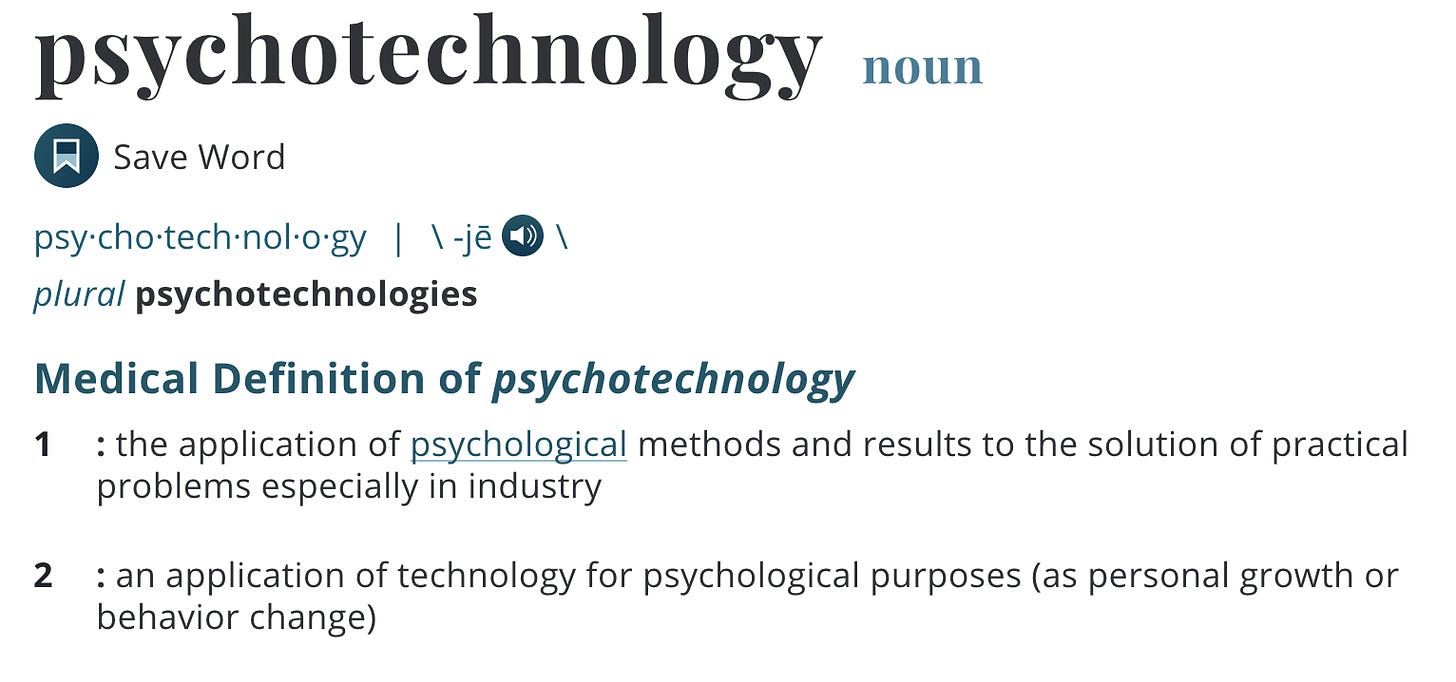
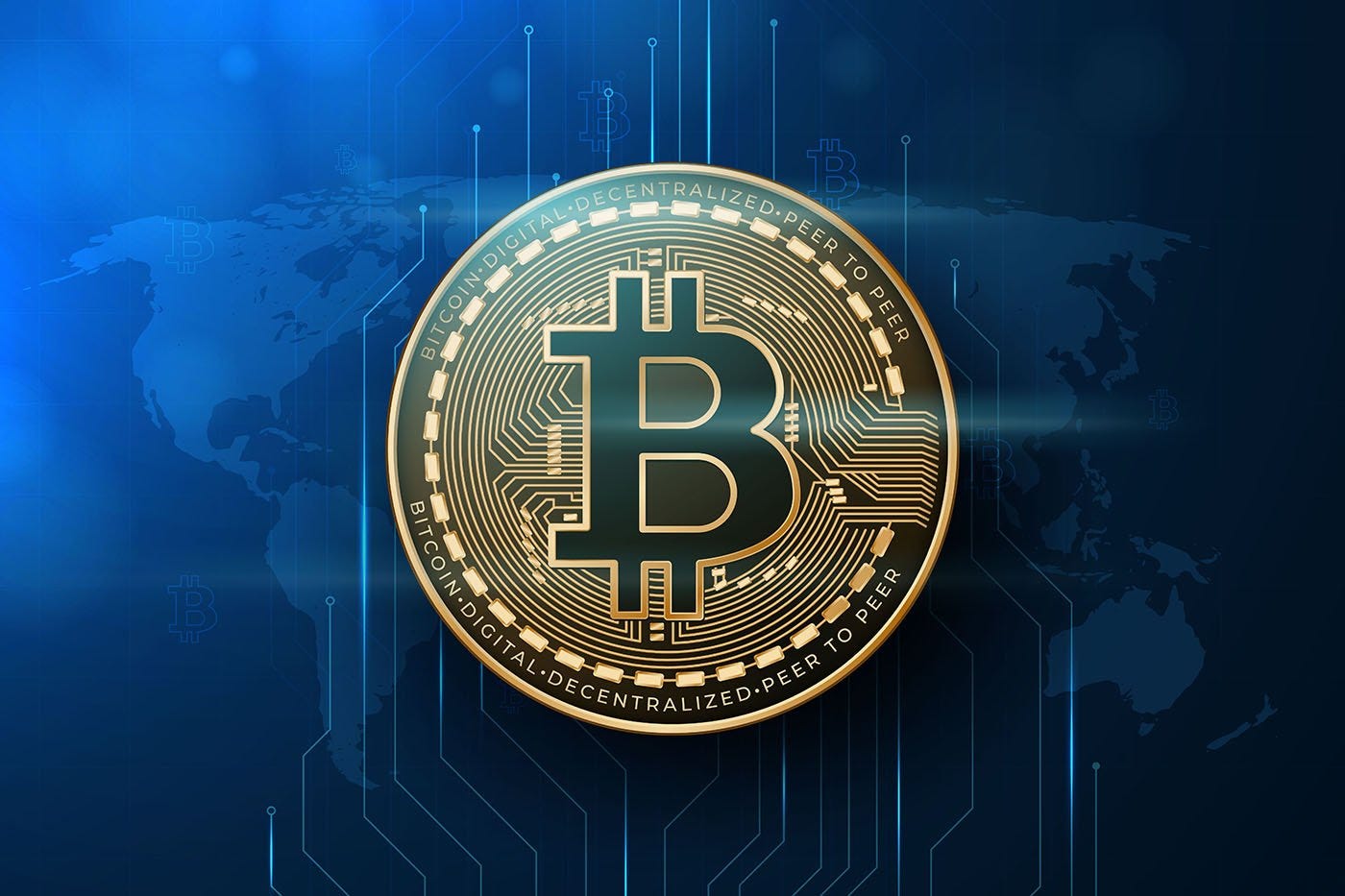
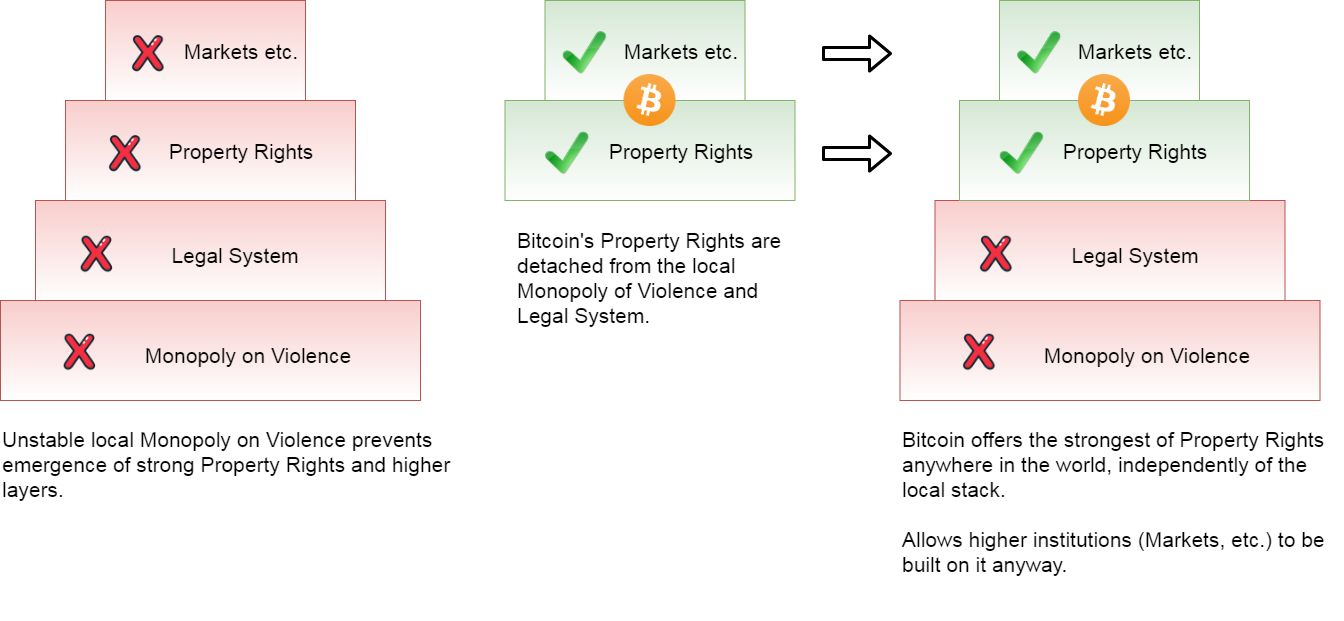
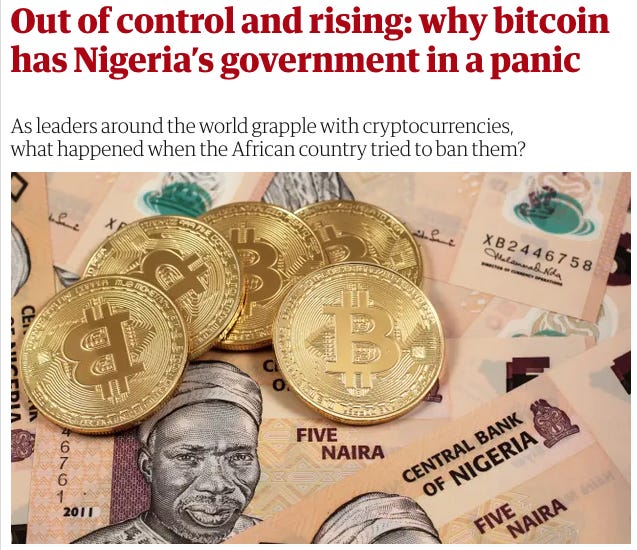

Eagerly awaiting the next installment of this series !
Gracias Robert. Un placer leerte